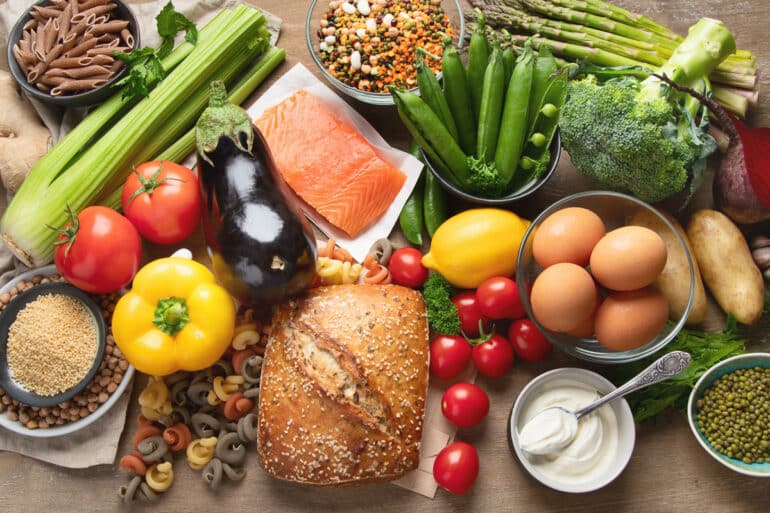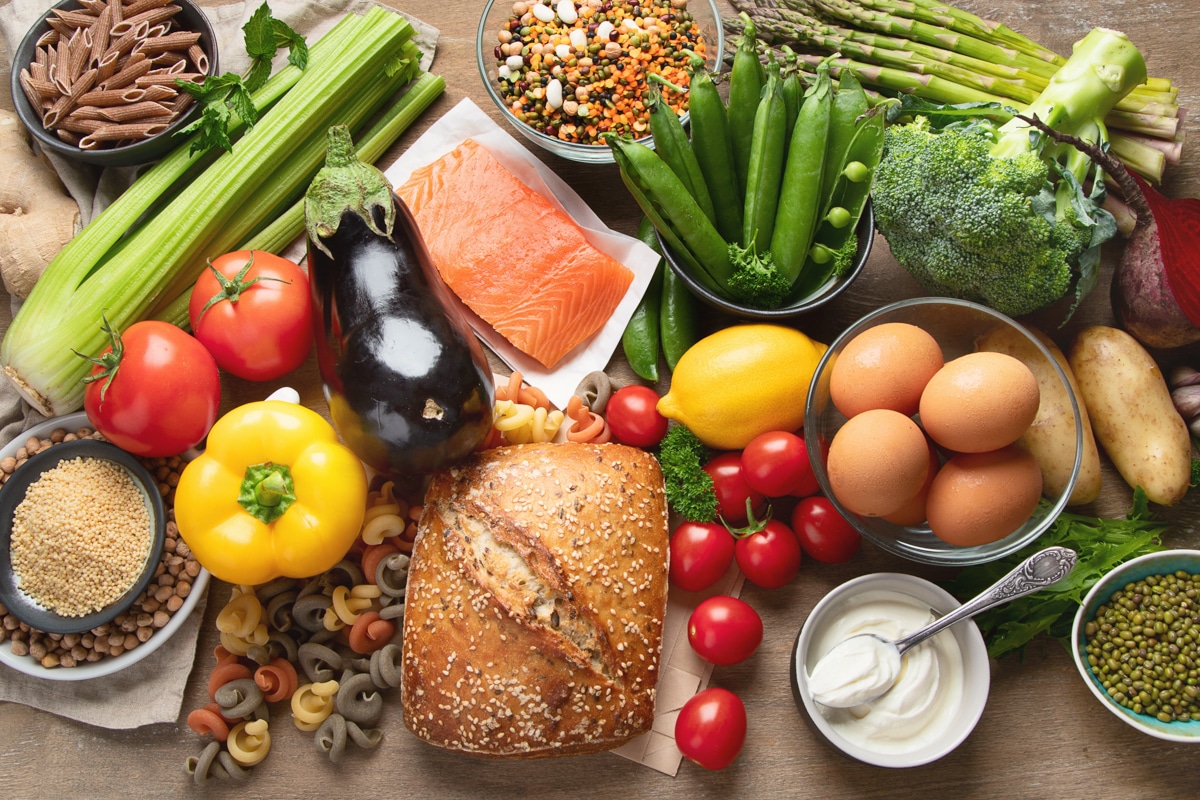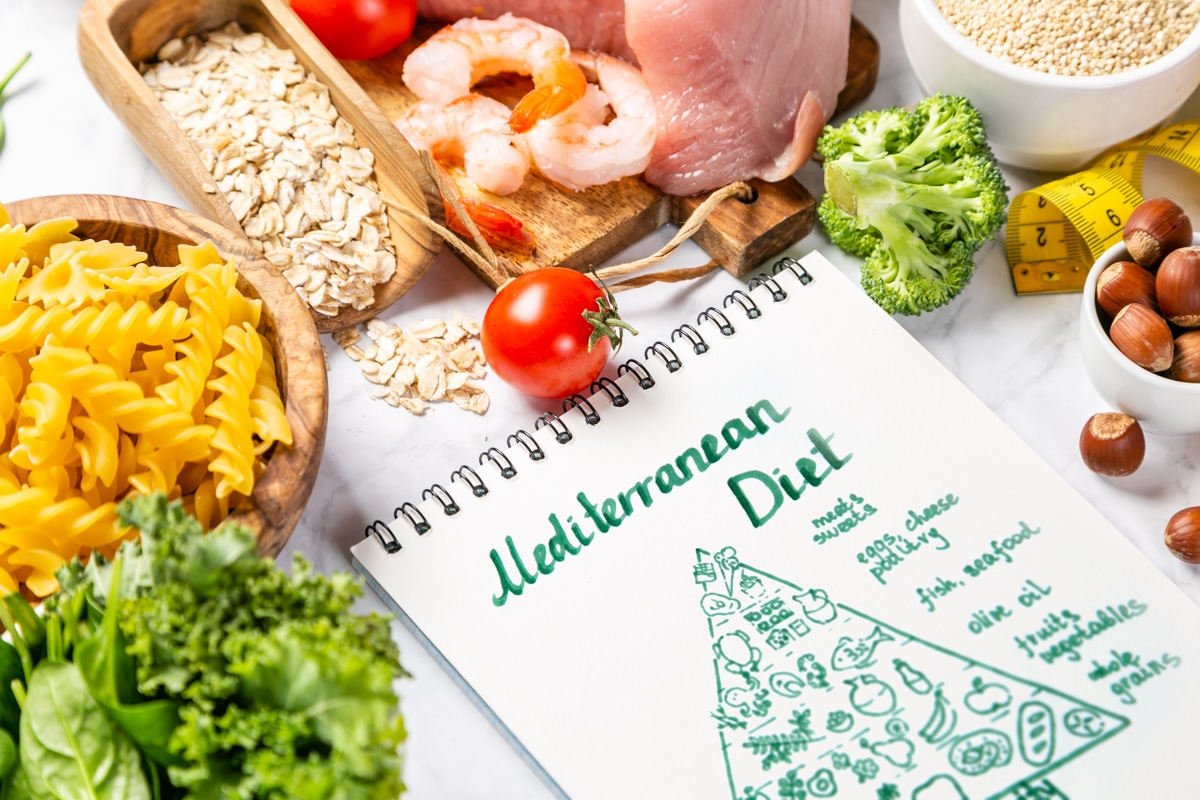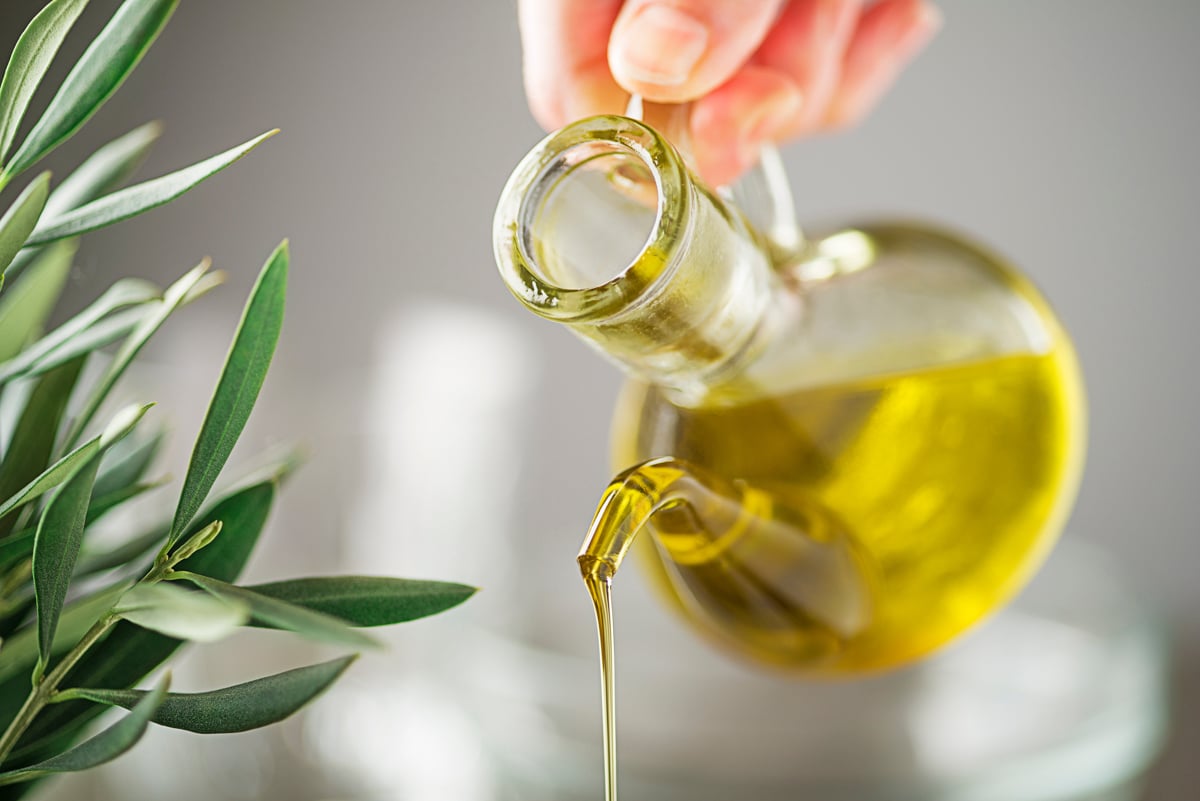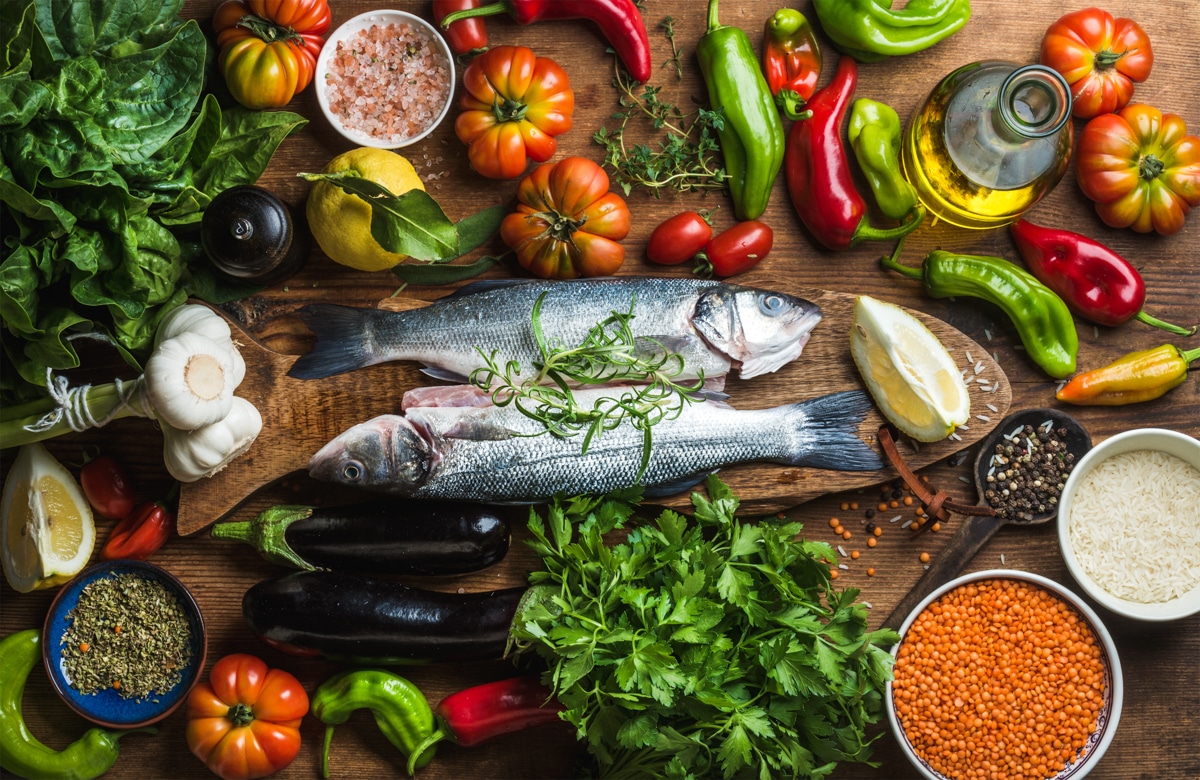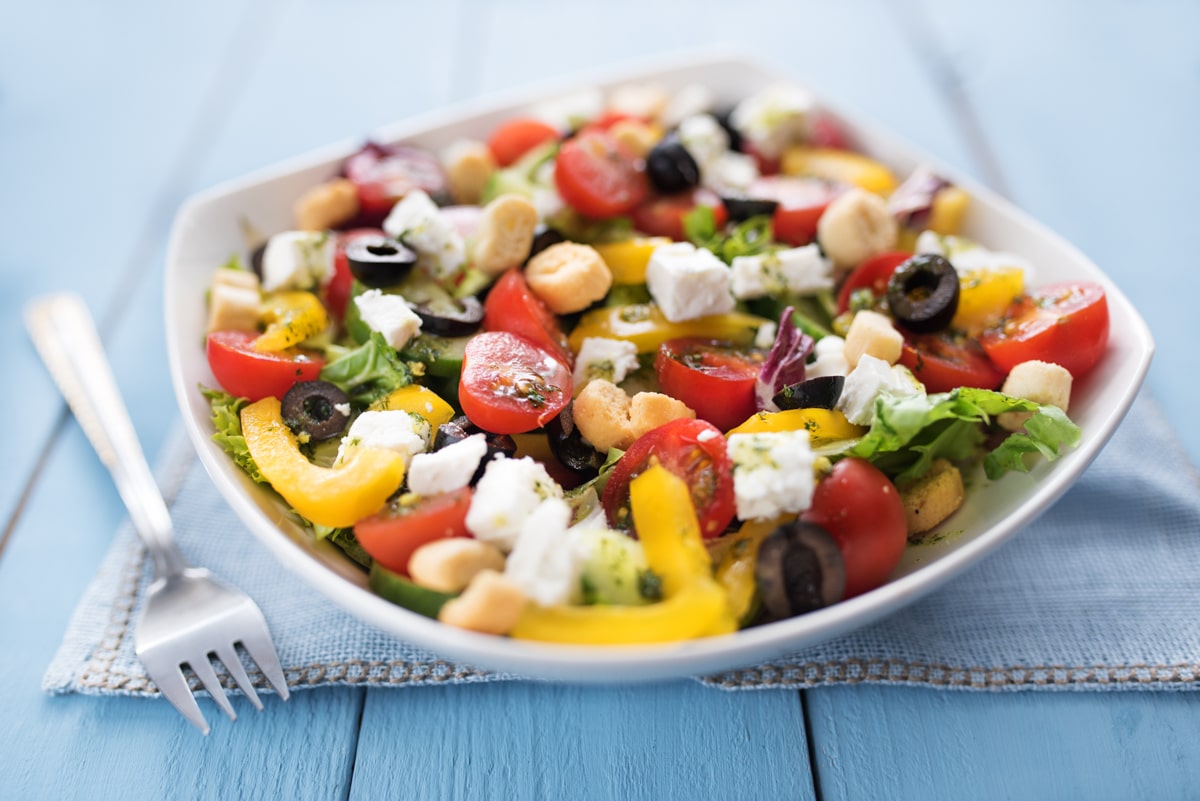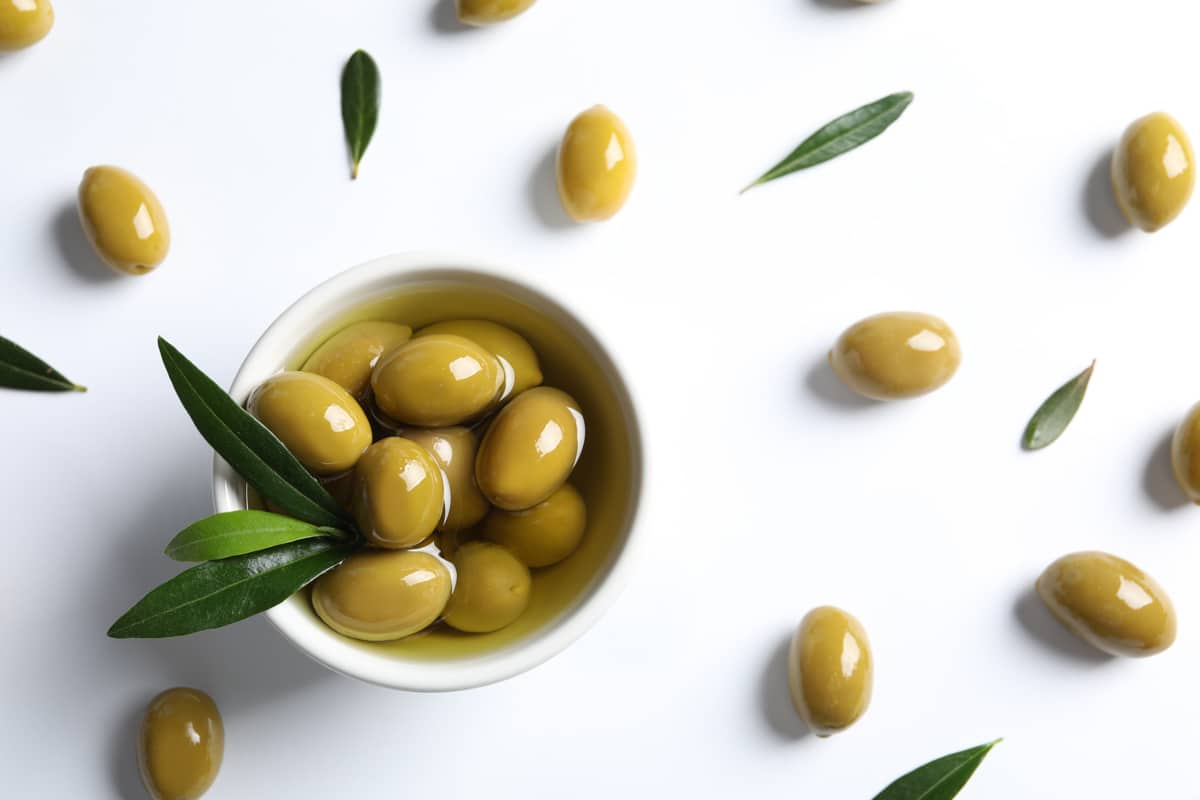Can you reverse aging by eating certain foods? Is there some crazy diet that can stop you from growing old? Well, scientifically speaking, you can’t stop yourself from getting older. Maturing is an inevitable, yet completely normal, part of life.
What you choose to put on your plate can significantly affect what you see in the mirror. However, diets can also affect the speed of the aging process and help prevent the development of age-related diseases.
From younger-looking skin to reducing inflammation, these key diet trends to slow down aging.
- Foods That Slow Down The Maturing Process
- Foods That May Speed Up Aging
- The Mediterranean Diet: Is This The Ultimate “Anti-Aging” Diet?
- Beverages: What Do You Drink On the Mediterranean Diet?
- The Mediterranean Diet And Its Effect On The Skin
- What About Exercise?
- Possible Drawbacks
- A Few Mediterranean Recipes To Try Out To See If This Diet Is Right For You
- Taking Everything Into Account
Foods That Slow Down The Maturing Process
Certain foods do offer skin rejuvenation properties. Eat the foods listed below to prevent premature aging.
Leafy Greens
Romaine lettuce, kale, arugula, and spinach contain vitamins and antioxidants that aid in skin rejuvenation and inflammation reduction.
Fruits And Vegetables
Tomatoes, apricots, melons, grapefruit, cranberries, guavas, and peaches contain lycopene, an antioxidant that protects from the sun, improves heart health, and reduces the risk of certain cancers.
Omega-3 Fatty Acids
Salmon, tuna, sardines, anchovies, oysters, flaxseed, walnuts, and chia seeds curb inflammation and improve bone strength because they contain large amounts of Omega-3 fatty acids.
Legumes
Kidney beans, chickpeas, lentils, peas, black beans, and soybeans are all healthy legumes for the body. Legumes contain loads of protein, fiber, and iron.
Whole Grains
Oatmeal, whole grain breads and pastas, quinoa, and brown rice have vitamin B, which helps the skin clear up any rashes or blemishes.
Foods That May Speed Up Aging
Just like some foods fight inflammation and help with the appearance of skin, some foods do the complete opposite.
Processed carbohydrates — like pasta, bread, and pastries — can affect your skin’s appearance, making you look older than you are. Processed foods with lots of added sugar or trans-fat can prevent you from feeling and looking your best.
Foods To Kick to The Curb
Below are the foods you want to avoid to prevent premature aging.
Anything Deep Fried
French fries, calamari, chicken nuggets, tempura, and potato chips add extra inflammation to your body. These foods can make you feel bloated and uncomfortable. Deep-fried foods increase your chances of heart disease because they increase cholesterol levels.
Pastries
Sugary treats and snacks like donuts, cakes, pies, and croissants contain large amounts of sugar which scientists believe may be linked to premature wrinkles and sagging.
Processed Meats
Eating pepperoni, sausage, hot dogs, and other deli meats lead to inflammation. Processed meats are typically high in sodium and saturated fats, negatively impacting the body.
Alcohol
Liquor, wine, beer, and hard seltzers immensely speed up the aging process. Drinking alcohol dehydrates you, causing your skin to wrinkle and sag. Plus, alcoholic beverages strip your skin of moisture and elasticity.
The Mediterranean Diet: Is This The Ultimate “Anti-Aging” Diet?
Thousands of studies suggest that the Mediterranean diet is the best lifestyle adaptation for longevity and healthy aging or “anti-aging.” What is the Mediterranean diet? What foods can you indulge in and what foods do you restrict on this diet?
The Mediterranean diet is plant-based except for the inclusion of fish as a good source of fatty acids and protein. The diet revolves around healthy fats, vegetables, whole grains, and legumes.
The Traditional Mediterranean Diet
The Mediterranean diet emphasizes vegetables, whole grains, fruit, and legumes. The diet prioritizes greens, fruit, beans, lentils, whole-grain pasta, brown rice, nuts, and fats over animal proteins. Although the diet includes fish and dairy products, these foods are consumed much less than plant-based products.
The Mediterranean diet consists of loads of healthy fats The traditional Mediterranean diet demands lots of olive oil. Instead of using butter, margarine, or any other type of oil, reach for olive oil. Other sources of healthy fats that play a significant role in the Mediterranean diet include avocados, nuts, and fish.
Choose fish over any other type of meat. The Mediterranean diet relies heavily on seafood for animal protein. Typically, the diet calls for a meal including fish twice or three times a week. Eggs and low-fat dairy products are also part of the Mediterranean diet. However, these animal products are consumed in much smaller quantities. Red meat and other animal proteins are rarely part of the diet.
Drink lots of water. On the Mediterranean diet, water is pretty much the only beverage to drink other than an occasional glass of red wine (if you’re trying to reduce inflammation as much as possible, cutting out alcohol altogether may be the best choice).
Beverages: What Do You Drink On the Mediterranean Diet?
Water is the leading beverage that Mediterraneans drink, but there must be other drinks you can enjoy on this diet, right? The answer to that question would be: absolutely!
On the Mediterranean diet, you can sip on tea, coffee (without all the added sugars), smoothies, and the occasional glass of red wine with your dinner.
Beverages to avoid on the Mediterranean diet include sweet teas and sodas. Yes, this even includes diet sodas because artificial sweeteners fall under the category of processed products, and the focus of the Mediterranean diet is all about whole foods.
Avoid sugar as much as you can!
The Mediterranean Diet And Its Effect On The Skin
Do you want clear skin? Do you want to unclog those pores? Is your skin oily? On the dry side? No matter your personal skincare woes, the Mediterranean diet might be the perfect solution for you.
The Mediterranean diet is super beneficial for your skin. Because of all the fresh food products essential for the diet and healthy fats, the Mediterranean diet stabilizes oils in the skin. Some may even call it “anti-aging.”
What About Exercise?
Exercise and moving your body boost the effects of the Mediterranean diet. Many who live this healthy lifestyle say it’s best to work out in a way you genuinely enjoy.
Typically, 30 minutes of moderate exercise four to five days a week is a great way to see the best results from the healthy foods you’re eating. Raising your heart rate and breaking a sweat allows your body to release any toxins and promotes a better cardiovascular system. Plus, getting your blood pumping reduces inflammation.
Possible Drawbacks
The Mediterranean diet is proven to help you feel great inside and out. Because many foods in the Mediterranean diet are high in calories, it is possible to experience weight gain. Also, some potential issues can occur if your diet is unbalanced.
Check out the Mediterranean diet pyramid to ensure you get the proper nutrients to prevent weight gain from happening.
A Few Mediterranean Recipes To Try Out To See If This Diet Is Right For You
Do you want to try out the Mediterranean diet? Below are a few recipe ideas for breakfast, lunch, and dinner.
Mediterranean Breakfast Recipes
Breakfast Sandwich With Egg, Rosemary, Tomatoes, And Feta
This whole grain sandwich is filled with healthy whole foods popular in the Mediterranean. This recipe makes four servings, so it’s a great choice if you’re cooking for others.
Ingredients
-
4 whole-grain or whole wheat pita bread or sandwich thins.
-
4 teaspoons of olive oil
-
½ teaspoon of crushed rosemary
-
4 eggs
-
2 cups of spinach
-
1 tomato thinly sliced
-
4 tablespoons of feta cheese
-
salt
-
pepper
Directions
Step 1: Preheat your oven to 375 degrees. Separate the sandwich thins or the pita bread. Brush two tablespoons of olive oil over the bread. Place the sandwich thins or pita bread on a baking sheet in the oven for about five minutes or until the bread is light brown and slightly crispy.
Step 2: While toasting the bread, heat the remaining tablespoons of olive oil in a large skillet with the crushed rosemary over low-medium heat. Break each egg onto the skillet one at a time. Cook each side of the egg for about one minute, slightly breaking the yolk with a spatula in between flipping sides. When the eggs are cooked to your preference, turn off the heat.
Step 3: Place toasted pita or sandwich thins on your plate. Add spinach, sliced tomato, egg, and feta cheese. Sprinkle on salt and pepper. Top with the remaining half of the bread and enjoy!
Nutrition Facts
One sandwich contains 242 calories, 13 grams of protein, 25 grams of carbohydrates, 6.2 grams of fiber, 3.2 grams of sugar, and 11.7 grams of fat.
This breakfast sandwich is an excellent source of vitamins A and C, magnesium, iron, calcium, and potassium.
Spinach And Egg Scrambled Toast With Blueberries
This Mediterranean breakfast is packed with protein, whole grains, and power foods that will leave you feeling great all day.
Ingredients:
-
1 teaspoon of olive oil
-
1 cup of spinach
-
2 eggs
-
salt
-
pepper
-
1 slice of whole-grain bread
-
½ cup of blueberries
Directions:
Step 1: Toast the whole grain bread using your oven or a toaster until light brown and slightly crispy.
Step 2: Heat the olive oil in a nonstick pan at medium heat.
Step 3: Add the spinach and keep cooking until it’s wilted. Stir the spinach every minute or so. Once the spinach is cooked to your preference, remove it from the heat and place it on a plate.
Step 4: Wipe the pan clean to prepare the eggs. Place the skillet back over medium heat. Crack the eggs into a bowl and whisk until evenly beaten. Add eggs to the pan and occasionally stir to ensure the eggs cook smoothly.
Step 5: Sprinkle the spinach, salt, and pepper over the eggs and stir. Take the scramble off the heat. Top everything over the toasted whole grain bread and add the side of blueberries. Bon Appetit!
Nutrition Facts
One Scramble over toast with blueberries is 327 calories, 17.8 grams of protein, 25.9 grams of carbohydrates, 4.2 grams of dietary fiber, 10.8 grams of sugars, and 15.14 grams of fat.
This hearty breakfast is excellent for weight loss and keeps you going throughout your day due to all the protein and fiber.
Mediterranean Lunch Recipes
Chickpea Greek Salad
This simple salad is packed with healthy veggies and Mediterranean flavors, and it only takes about 15 minutes to whip up! Plus, it feeds up to four people so you can enjoy this Mediterranean salad with family and friends.
Ingredients
For the salad:
-
1 can of chickpeas
-
1 red bell pepper chopped
-
1 green bell pepper chopped
-
1 yellow bell pepper chopped
-
¼ cup of red onion diced
-
⅓ cup of pitted black olives
-
1 cucumber sliced and quartered
-
½ cup of feta cheese
For the Dressing:
-
2 tablespoons of olive oil
-
2 tablespoons of lemon juice
-
1 clove of minced garlic
-
salt
-
pepper
Directions
Step 1: Place all the salad ingredients into a large bowl. Toss and mix the ingredients.
Step 2: Put all the dressing ingredients in a small bowl and mix until everything is well combined.
Step 3: Mix the dressing and salad ingredients. Then place the salad in the refrigerator to marinate for one hour. Enjoy!
Nutrition Facts:
This Greek salad is 279 calories per serving, 12.3 grams of protein, 33.5 grams of carbohydrates, 4 grams of dietary fiber, 12.4 grams of sugars, and 12.3 grams of fat.
This salad makes a great lunch and can last for a few days in your refrigerator making it a great meal prep for the rest of your week.
White Bean And Vegetable Salad
This plant-based salad is a great way to shake up your salad game.
Ingredients
-
2 cups of mixed salad greens
-
½ cup of sliced cherry tomatoes
-
½ cup of quartered cucumbers
-
⅓ cup of canned white beans, rinsed and drained
-
½ of an avocado, diced
-
2 teaspoons of olive oil
-
salt
-
pepper
Directions
Step 1: Combine the greens, tomatoes, cucumbers, beans, and avocado in a large bowl. Toss and mix the ingredients and drizzle olive oil over the salad. Add as much salt and pepper as you’d like. Eat up!
Nutrition Facts:
This nutritious Mediterranean-style salad is 360 calories, 10.1 grams of protein, 29.7 grams of carbohydrates, 13.3 grams of dietary fiber, 2.9 grams of sugars, and 24.6 grams of fat.
This colorful and delicious salad helps fight inflammation, and all the healthy fats will keep your skin glowing.
Mediterranean Dinner Recipes
Salmon Over Quinoa Salad
This delicious Mediterranean salad will leave you feeling and looking younger with all these healthy fats and proteins.
Ingredients
-
3 tablespoons of olive oil
-
1 pound of salmon
-
½ teaspoon of salt
-
½ teaspoon of pepper
-
2 tablespoons of red wine vinegar
-
1 clove of grated garlic
-
2 cups of cooked quinoa
-
¼ cup of chopped cilantro
-
¼ cup of chopped pistachios
Directions
Step 1: Add one tablespoon of olive oil to a large nonstick pan over medium heat.
Step 2: Pat the salmon dry. Sprinkle salt and pepper over the salmon for seasoning. Place the salmon on the skillet skin side up. Cook for about six minutes or until lightly brown. Flip the salmon and continue cooking for another four minutes.
Step 3: While the salmon is cooking, mix the remaining two tablespoons of olive oil, salt, pepper, vinegar, and garlic into a medium-sized bowl. After evenly mixing, add the cooked quinoa, peppers, pistachios, and cilantro.
Step 4: Serve the salmon over the quinoa salad and enjoy!
Nutrition facts:
This healthy Mediterranean dinner is 481 calories, 3.5 grams of protein, 31 grams of carbohydrates, 3.5 grams of dietary fiber, 1.4 grams of sugars, and 21 grams of fat.
This dinner recipe contains protein, whole grains, and healthy fats. After eating this meal, you’ll feel younger with all the energy it provides your body.
Mediterranean Minestrone
This minestrone is packed with superfoods that aid in curbing inflammation, and the ingredients in this meal help fight off wrinkles and sagging skin.
Ingredients
-
2 tablespoons of olive oil
-
3 medium trimmed and washed leeks
-
1 cup of water
-
1 large red potato, diced
-
2 tablespoons of dried thyme
-
salt
-
pepper
-
½ cup of whole wheat orzo
-
1 15-ounce can of rinsed white beans
-
2 medium-sliced and quartered zucchinis
-
1 pound of spinach
-
2 tablespoons of cider vinegar
-
Parmesan cheese
Directions
Step 1: Heat the olive oil in a large soup pot over medium heat. Add in the leeks and cook, stirring occasionally. Leeks should soften after about three or four minutes.
Step 2: Add broth, water, potato, thyme, salt, and pepper. Bring the mixture to a boil, then reduce heat to a simmer. Cover for five minutes.
Step 3: Add orzo and cook for five minutes. Stir occasionally to prevent sticking.
Step 4: Add beans and zucchini and continue to cook until all the ingredients are tender.
Step 5: Stir in spinach and cook until wilted. Season the soup with vinegar. Pour soup into bowls and top it off with parmesan.
Nutrition Facts:
This hearty minestrone is 299 calories, 18.2 grams of protein, 54.5 grams of carbohydrates, 13.8 grams of dietary fiber, 7.1 grams of sugar, and 4.8 grams of fat.
This low-calorie meal will aid in weight loss and will contribute to helping you feel and look like your younger self.
Taking Everything Into Account
Unfortunately, you can’t reverse aging, but there are ways to slow down the process. Eating healthy, switching to a Mediterranean diet, and moving your body will always make you feel and look your best.
These recipes and food groups are filled with ingredients that can clear your skin, reduce inflammation, prevent age-related illnesses, and possibly even help you lose a few pounds. Why not give it a try?

